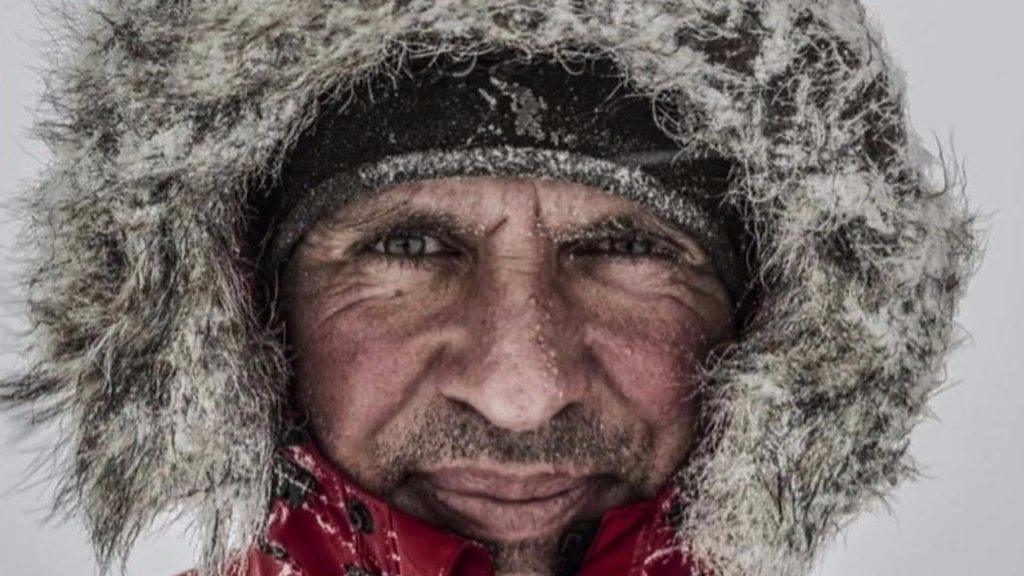Disabled military veteran reaches South Pole
- Published
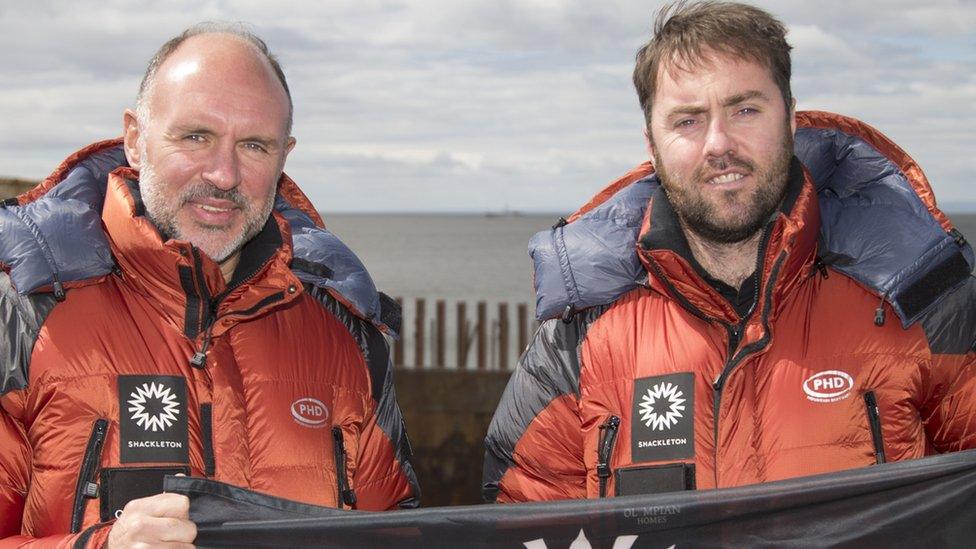
Lou Rudd and Martin Hewitt both served in the military
A disabled military veteran and a polar explorer have reached the South Pole after skiing more than 400 miles (644km) in 50 days.
Former paratrooper Martin Hewitt, from Manchester, lost the use of his right arm after being shot in Afghanistan.
He completed the trek with former British Army officer Lou Rudd, from Hereford, on 5 January.
"For him to do this with one arm is just absolutely incredible," Mr Rudd said.
The pair are now recuperating at a camp on the coastline of Antarctica before attempting to climb to the summit of the continent's highest peak, Mount Vinson.
In 2018, Mr Rudd became the first Briton in history to trek unaided across Antarctica, but the 52-year-old said this attempt was "probably harder" due to Mr Hewitt's disability.
"To try and do everything down here with one arm is so difficult. Just putting on a jacket - I had to help him get his jacket on, he can't do zips or tie his bootlaces," he said.
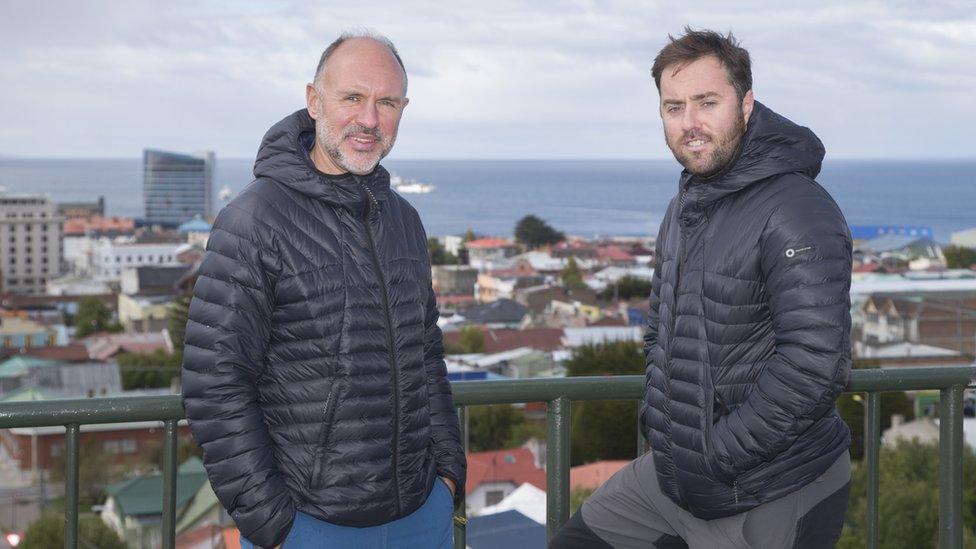
Mr Rudd (left), who previously trekked unaided across Antarctica in 2018 said this attempt with Mr Hewitt was "probably harder"
Mr Hewitt, 41, kept his right arm in a sling and used his other arm while skiing which he described in a Facebook post as "the one thing I struggle with more than anything else".
He added using just one pole and balancing on the ice and snow had been "really challenging" meaning he had fallen "a lot".
The overwhelming feeling he had on finishing, Mr Hewitt wrote, was "gratitude, for the opportunity to come and do this".
The conditions they faced included 40-50mph winds and crevasses in the ice while pulling sleds on skis, covering up to 12 miles (19km) each day.
Mr Rudd told BBC Hereford and Worcester the temperatures, which could be as low as of -50C, were "pretty brutal" and they had to constantly check for frostbite.
They particularly had to check Mr Hewitt's paralysed right arm as if he got frostbite in the limb "he would not have felt it", Mr Rudd added.
Their attempt on Mount Vinson is due to begin on 9 January as part of Mr Hewitt's efforts to complete the Explorers Grand Slam, external.
The aim is to climb the highest peaks on all seven continents and reach the North Pole and South Pole. He believes he would be the first person with a disability to complete the challenge.

Follow BBC West Midlands on Facebook, external, Twitter, external and Instagram, external. Send your story ideas to: newsonline.westmidlands@bbc.co.uk, external
Related topics
- Published5 January 2022
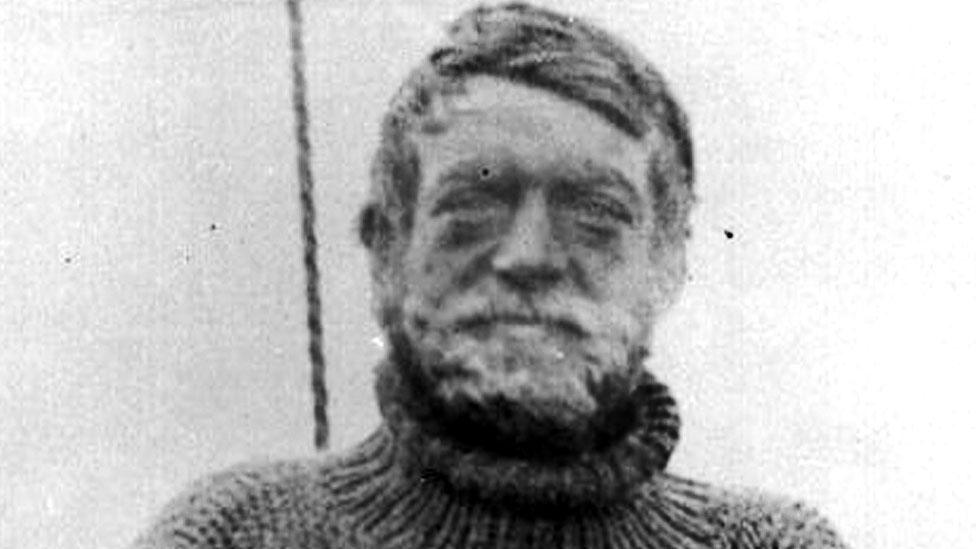
- Published5 January 2022
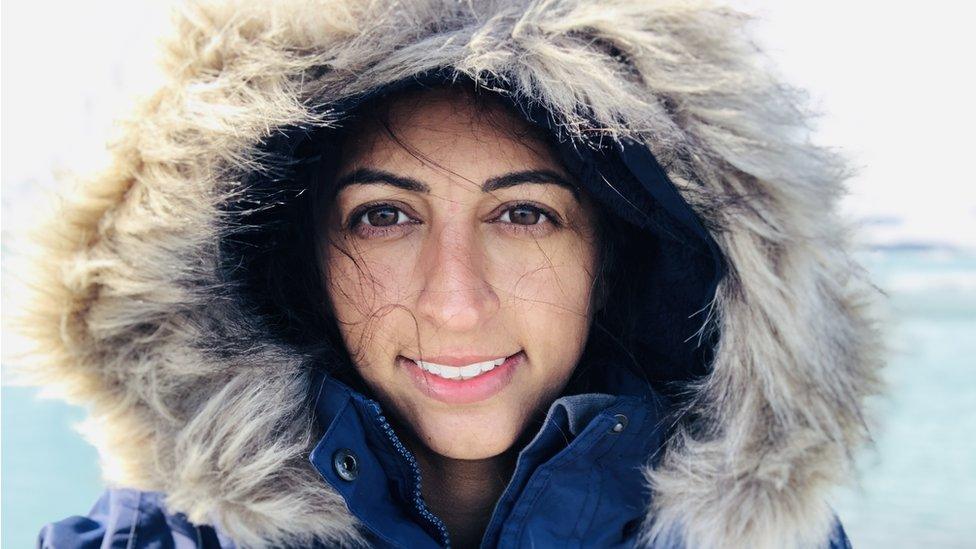
- Published10 January 2019
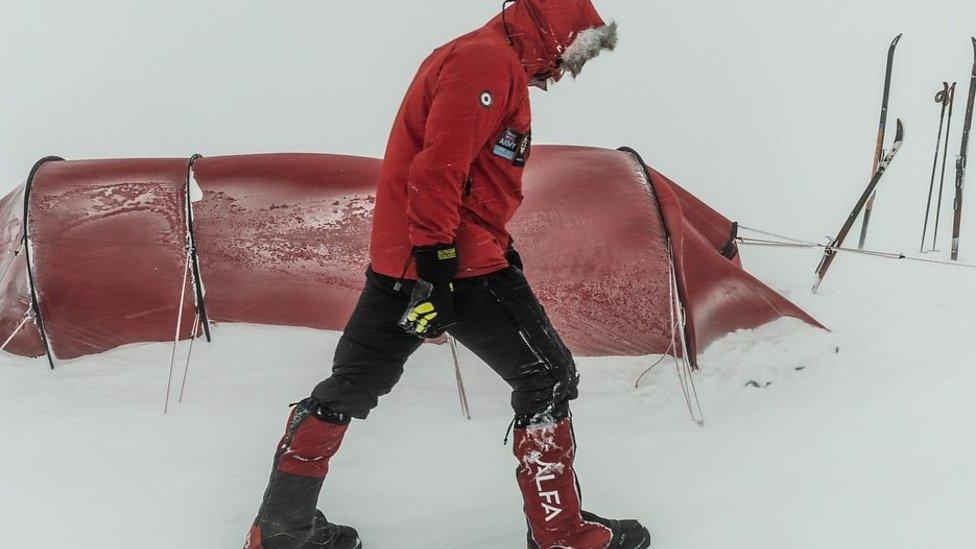
- Published29 December 2018
